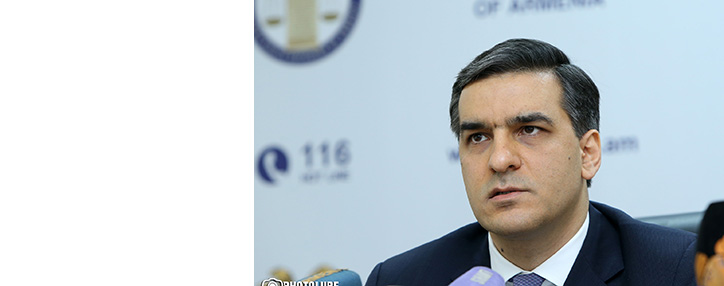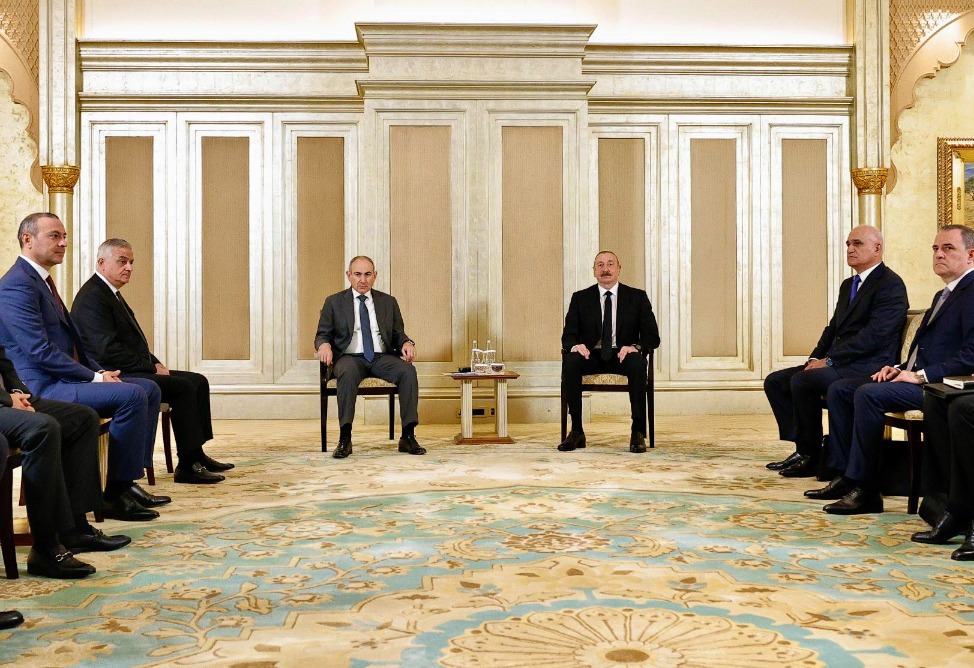Ombudsman considers demarcation of state border through GPS system as threat to Armenian citizens
14.12.2020,
10:37
Arman Tatoyan, Armenian ombudsman, considers it unacceptable to carry out delimitation or demarcation of the state border of Armenia based on Google Maps or the GPS system.

YEREVAN, December 14. /ARKA/. Arman Tatoyan, Armenian ombudsman, considers it unacceptable to carry out delimitation or demarcation of the state border of Armenia based on Google Maps or the GPS system.
"It is unclear which version of Google Maps is taken as a basis, if Google itself notes that there are many versions of online maps of the world. Or has it already been clarified which systems of algorithms or positioning mechanisms underlie a particular version of an online map?" Tatoyan wrote on his Facebook page.
He stressed that the research and observations of his office in the border settlements confirm that such an approach seriously threatens the constitutional rights of residents to life, physical and mental integrity, and their property.
According to Tatoyan, the matter concerns the protection of the borders of the Armenian state, physical security and provision of the people and every person.
"The issue of demarcation or delimitation of borders requires a professional approach, the results of scientific research, detailed work on the spot, a proper legal framework, etc. This issue should be one of the exceptional priorities of our country and is in the center of everyone's attention," the ombudsman said.
Earlier, the Ministry of Defense of Armenia stated that delimitation works [on the definition of a new line of the Armenian-Azerbaijani border - ed.] are carried out with the participation of representatives of the armed forces of Armenia, Russia and Azerbaijan using special means (GPS).
This angered the opposition, including the deputies Naira Zohrabyan and Edmond Marukyan, who questioned the accuracy of the application of such a method, which harms the state interests of Armenia.
About Artsakh War
From September 27 to November 9, the Azerbaijani Armed Forces, with the participation of Turkey and foreign mercenaries and terrorists recruited by it, carried out aggression against Artsakh at the frontline and in the rear using rocket and artillery weapons, heavy armored vehicles, military aircraft and prohibited types of weapons (cluster bombs, phosphorus weapons). The strikes were delivered also at civil and military targets on the territory of Armenia.
On November 9, the leaders of the Russia, Azerbaijan and Armenia signed a statement on the cessation of all hostilities in Artsakh. According to the document, the parties stop at their positions. The city of Shushi, Agdam, Kelbajar and Lachin regions pass over to Azerbaijan, with the exception of a 5-kilometer corridor connecting Karabakh with Armenia. A Russian peacekeeping contingent will be deployed along the contact line in Karabakh and along the Lachin corridor. Internally displaced persons and refugees are returning to Karabakh and adjacent regions, prisoners of war, hostages and other detained persons and bodies of the dead are exchanged. -0-
"It is unclear which version of Google Maps is taken as a basis, if Google itself notes that there are many versions of online maps of the world. Or has it already been clarified which systems of algorithms or positioning mechanisms underlie a particular version of an online map?" Tatoyan wrote on his Facebook page.
He stressed that the research and observations of his office in the border settlements confirm that such an approach seriously threatens the constitutional rights of residents to life, physical and mental integrity, and their property.
According to Tatoyan, the matter concerns the protection of the borders of the Armenian state, physical security and provision of the people and every person.
"The issue of demarcation or delimitation of borders requires a professional approach, the results of scientific research, detailed work on the spot, a proper legal framework, etc. This issue should be one of the exceptional priorities of our country and is in the center of everyone's attention," the ombudsman said.
Earlier, the Ministry of Defense of Armenia stated that delimitation works [on the definition of a new line of the Armenian-Azerbaijani border - ed.] are carried out with the participation of representatives of the armed forces of Armenia, Russia and Azerbaijan using special means (GPS).
This angered the opposition, including the deputies Naira Zohrabyan and Edmond Marukyan, who questioned the accuracy of the application of such a method, which harms the state interests of Armenia.
About Artsakh War
From September 27 to November 9, the Azerbaijani Armed Forces, with the participation of Turkey and foreign mercenaries and terrorists recruited by it, carried out aggression against Artsakh at the frontline and in the rear using rocket and artillery weapons, heavy armored vehicles, military aircraft and prohibited types of weapons (cluster bombs, phosphorus weapons). The strikes were delivered also at civil and military targets on the territory of Armenia.
On November 9, the leaders of the Russia, Azerbaijan and Armenia signed a statement on the cessation of all hostilities in Artsakh. According to the document, the parties stop at their positions. The city of Shushi, Agdam, Kelbajar and Lachin regions pass over to Azerbaijan, with the exception of a 5-kilometer corridor connecting Karabakh with Armenia. A Russian peacekeeping contingent will be deployed along the contact line in Karabakh and along the Lachin corridor. Internally displaced persons and refugees are returning to Karabakh and adjacent regions, prisoners of war, hostages and other detained persons and bodies of the dead are exchanged. -0-



